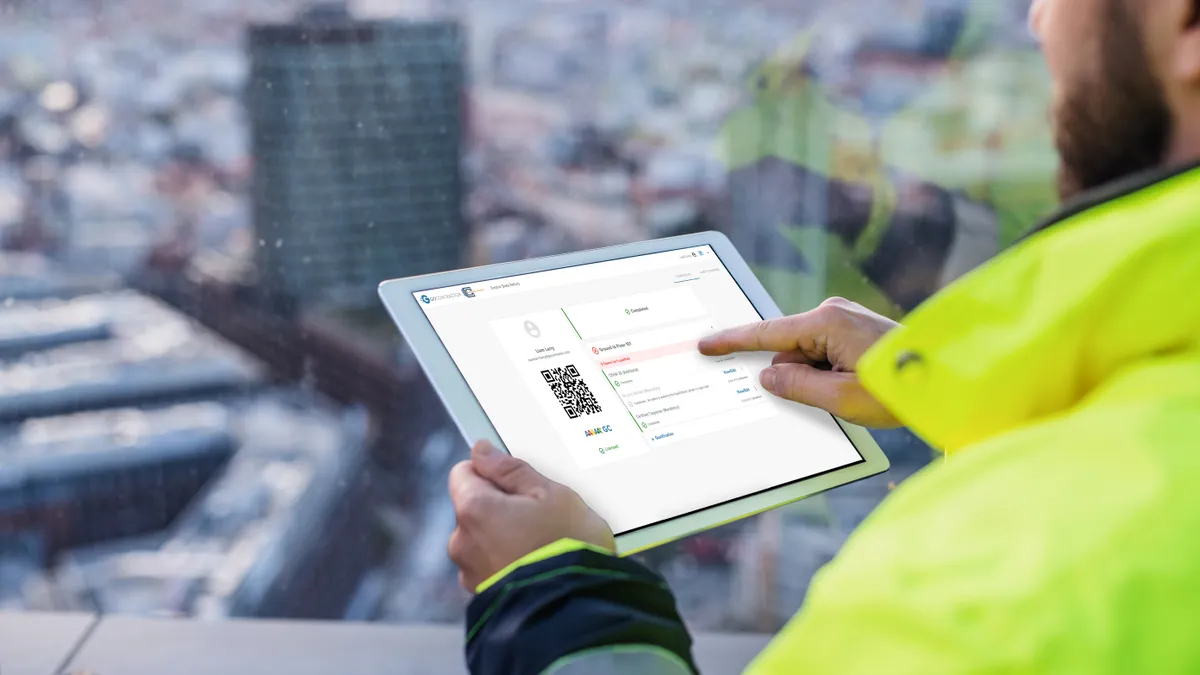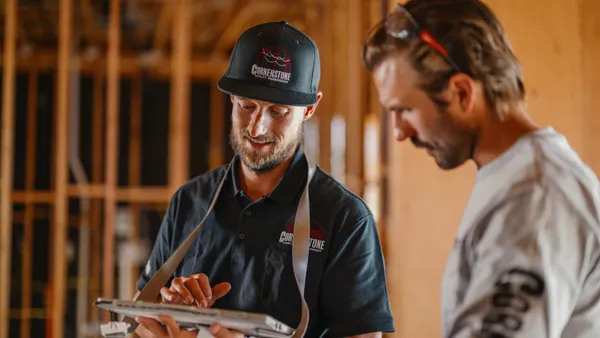The NEXT Coalition, a construction technology consortium formed in 2020 by Black & Veatch, DPR Construction, Haskell and McCarthy to combat COVID-19 challenges on the jobsite, has completed the rollout of of a key safety orientation and onboarding technology, and has plans to continue its work after COVID-19, according to coalition members interviewed by Construction Dive.
"The NEXT Coalition represented something bigger in terms of a little bit of co-opetition, and a little bit of open innovation in terms of how different companies are coming together with an aligned focus and an aligned priority," said Dave Burns, director of innovation and field applications for McCarthy Building Companies. "The NEXT Coalition was absolutely born out of a need to respond to COVID-19, and safety challenges that COVID-19 was presenting."
Co-opetition is collaboration between business competitors, in the hope of mutually beneficial results. Some of the most successful technologies, especially early in the COVID-19 response, were solutions around safety orientation. The usual orientation process was leading to undesirable congregations at the site, which led NEXT Coalition members to adopt automated worker onboarding solution GoContractor.
"We partnered with them and executed a number of pilots nationwide," said Burns. "As a result, we decided to sign an enterprise agreement with them, and are in the process of launching that as a national implementation."
Using GoContractor, workers complete a digital safety orientation process that can be set up as a project specific template. NEXT Coalition members plan to keep using it beyond COVID-19, said Burns.
Coalition member firm DPR is also currently testing remote assist solutions that leverage mobile tablets, phones or an augmented reality headset. This technology allows for an individual on a jobsite with a camera or headset to communicate with another team member, owner or inspector, said Kaushal Diwan, national innovation leader at DPR. He added that when DPR projects were working on reduced capacity, they used these remote assist tools to perform project inspections.
"This solution has a potential to really take off. It will create a new avenue for project inspections and create more flexibility," said Diwan. "It will also allow for on site support in a more timely manner. If scaled further, this could also help reduce travel budgets because you are minimizing unnecessary travel for short meetings."
Other testing
Named Construction Dive's Innovator of the Year in December, the coalition also initially field-tested tracking technology to monitor workers' locations on jobsites to comply with social distancing guidelines. But due to reservations from workers, the technology ultimately wasn’t adopted. Tracking solutions often receive pushback from the workforce due to privacy concerns, Diwan said.
"[There was] friction associated with standing up some of those solutions," Burns said. "That made it hard to consider those technologies as a solution at scale."
Coalition members will continue to meet after COVID-19, said Burns and will continue to identify new challenges, such as shared pain points for contractors, said Diwan.
"There is absolutely a plan to continue its formation and continue its focus," said Burns. "[The coalition] is actually working toward what is going to be the next kind of alliance, priority and focus. They'll engage the technology community at a global scale to collaborate around what would be a next opportunity."















